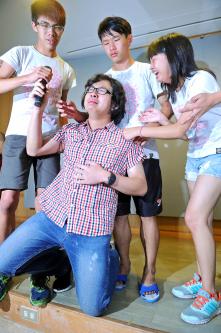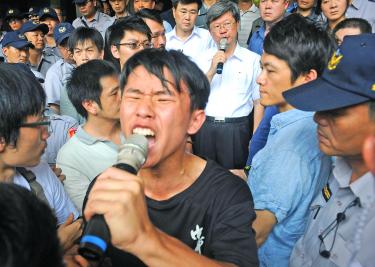
National Taichung First Senior High School Apple Tree Commune Club spokesperson Chen Chien-hsun falls to his knees and asks forgiveness of student protester Dai Lin, who apparently committed suicide on Thursday last week in protest against curriculum adjustments, at a news conference following unproductive talks with Minister of Education Wu Se-hwa on the curriculum controversy at the National Central Library in Taipei yesterday.
Photo: CNA
Talks between Minister of Education Wu Se-hwa (吳思華) and students over the curriculum controversy fell apart yesterday, with students storming out of a Ministry of Education (MOE)-sponsored forum in tears.
“What in the world are these talks supposed to be?” Northern Taiwan Anti-Curriculum Changes Alliance convener Chu Chen (朱震) said. “What I see is a failure of education and a policy that has gradually moved away from the masses.”



 The News
The News









